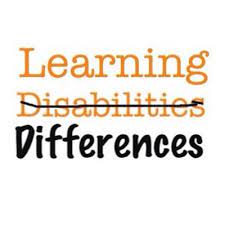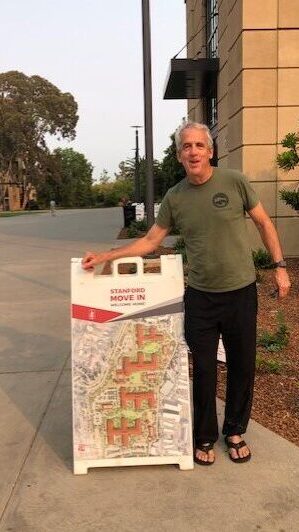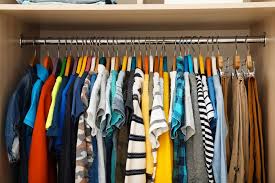Who gets to say what? Under what circumstances? When are opinions warranted? When should we keep our mouths shut? Does being right matter? Is the relationship between parent and child more cogent than knowledge and authority?
I got well-deserved pushback on two articles last month. I wrote about eating disorders to make a point; I may have been unintentionally insensitive. As a male who does not struggle with weight issues, how can I pretend to have any insight into those who do? I was accused of “fat shaming.” Thoughtful readers pointed out that I don’t have the standing to have an opinion about folks with eating issues. I learned a lot. I won’t make the same mistake again.
In my defense, I was trying to communicate about the trauma parents pass on to children and did not mean to suggest that obesity is a moral flaw. But I will be more circumspect in future.
I pride myself on being aware that no one chooses to learn differently and have written for years about how children get into a bad place when “can’t” is mistaken for “won’t.” “Won’t” can quickly morph into a life of its own as children act out because they would rather be incorrigible than incompetent. No child wakes up in the morning and decides, Hey, I have an idea: I’ll pretend not to be able to distinguish a “d” from a “b.” To the contrary, reading disabilities are real.
I feel strongly that I have the standing to talk about children who learn differently because I was one. My education was stained by a series of well-meaning but brutally oblivious teachers. He’s so smart. If he would only do his homework. He knows the material, why won’t he perform on tests? He’s lazy, unmotivated. He would do well if only he would try. These words still sting half a century later.
I applaud my colleagues who have improved the vocabulary of our profession. We now speak of “learning differences” rather than “learning disabilities” a significant improvement over “minimal brain dysfunction” of a generation ago. Or my teachers who accused me of being lazy so often that I internalized their insight and carried it with me for decades.
What about health care professionals? Surely, a doctor has the standing to suggest that ingesting a daily handful of opioids will have long range negative health consequences. But the best doctors do not insult their patients suffering from substance use disorder; doctors should understand craving; doctors should be sensitive to the path the patients walk and the brutal physiological and psychological costs of overcoming chemical dependency. Still, the doctors themselves do not have to have overcome addiction to be able to describe the health consequences.
Who gets to have an opinion? Gerhard Casper, was the president of Stanford University when he used the word “standing” in an oft-quoted article. I have added my voice to the overwhelming disregard for the rankings of colleges as if the institutions were three-year-old thoroughbreds being evaluated over ten furlongs.
“I hope I have the standing to persuade you that much about these rankings—particularly their specious formulas and spurious precision—is utterly misleading.”
What brilliant understatement! Of course, a college president has the standing to disparage silly rankings. Who knows more about a college than the president? College presidents are top of the food chain in our culture, earn a million dollars a year. (That top college football coaches earn over five million dollars a year is the subject for another column.) Gerhard Casper pointed that ranking colleges in magazines is a way for magazines to sell copies.
College presidents do indeed have the standing to talk about colleges. Do loving fathers have something to say about how their 14-year-old daughters dress?
My friends and I look at you with love, dad begins. But you may not be communicating what you wish to in the broader culture. Cover up, would you, please?
It’s my body, the daughter responds. I can dress how I like. I want to be comfortable; what people think is not my problem. Creepy men just have to deal with it.
This author has no opinion on the above father-daughter exchange. I am only posing the question: does dad have the standing to have an opinion about what his daughter wears? Does a 14-year-old have the authority and autonomy to choose her outfits?
My only insight revolves—as always—around the relationship between parent and child. The answer may lie not in what is said but how. Even a stray dog knows whether she has been tripped over or kicked. Kids intuit the why of parental advice. I want my child to perform up to her capability in school so that I can bathe in reflected glory and brag about what a good parent I am is different from I want my child to do well in school so that she can have a productive and independent future. Kids know where their parents are coming from. (I want my child to learn a lot because reading and thinking have brought pleasure to humans for millennia might be a bridge too far.)
I am eager to hear your insights into who has the standing to give advice. University presidents, doctors, educational consultants, loving fathers–what do we get to have opinions about, how are we supposed to share our insights, how do we help those we care about be open to our understanding?







2 thoughts on “Standing”
This is a very interesting subject to me and you’ve covered quite a bit of ground here! I have a few comments. First, I heard EXACTLY the same phrases that you did as a child. And I decided that the only two options were that 1) the grown-ups were wrong–I wasn’t smart at all or 2) other people just know how to work harder than I do and I must be really lazy. Neither of those conclusions was true and none of it was helpful to my development except that I have tremendous empathy for kids who struggle.
As for the argument between father and daughter, I always come back to Ken Ginsburg’s book “Raising Kids to Thrive.” He reminds us that the central question of adolescence is “Who am I?” and that figuring out that question is like putting together a jigsaw puzzle. The picture on the box of a jigsaw puzzle is the goal–what am I hoping to achieve? And parents (how we act and what we demonstrate) contributes there a lot. And putting together the edges (boundaries) is also parental work. What are the limits? Where are the boundaries? But the rest of the puzzle, the middle, is for the adolescent to figure out. And they will make mistakes and learn from them. So as a parent, when I want to intervene, I ask myself, “Is this box (values)? Is this edges (boundaries)? Or is this middle (my teenager’s job)?” The example of the outfit is fascinating because the dad probably feels like it’s edges–keeping his kid safe from creepy predators while the kid probably feels like it’s middle — expressing myself and figuring out who I am. By making this conflict explicit, the conversation can likely be more productive–because they can end up talking about how to stay safe, what clothing means to the kid, etc. instead of just fighting.
Keep making us think, David!!
Whether you have standing or not, I would suggest that those who are obese should focus less on whether they are being “fat-shamed” and more on how to lose weight. This is not a matter of social standing; it’s simply a matter of living a healthier life and, perhaps, a longer one. It is now popular in our culture to be a victim. So, whatever malady we suffer, whether self-imposed or not, is subject to public “woe-is-me” exposition. And, the audience – US – is expected to express sympathy. Sorry. I can be sympathetic to those whose circumstances are truly beyond their control. But not for those who fail to find readily available remedies to cure what ails them.